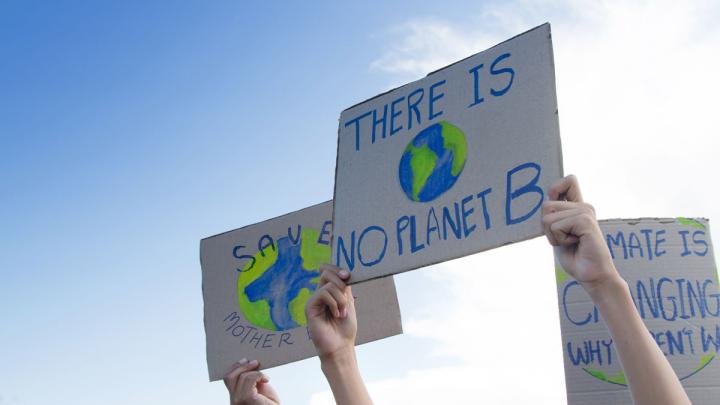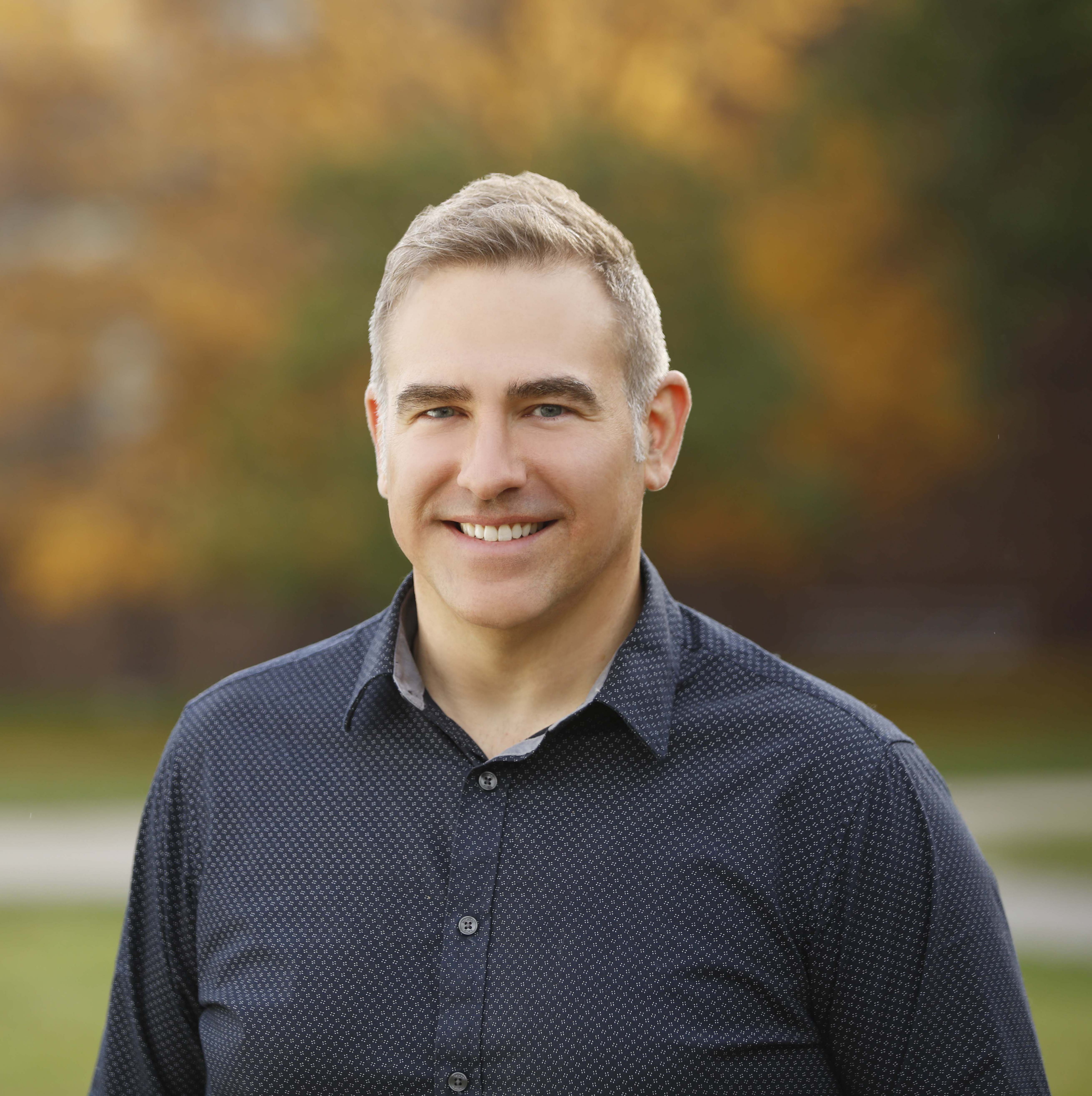
Researchers share helpful approaches for teachers encountering resistance
How might educators respond in circumstances where science and ideology collide? A team of educators set out to generate productive classroom discussions about climate change and its ramifications with students in culturally and politically conservative rural regions, like the Adirondacks in New York and eastern Kentucky.
How people think about climate change, its causes and its effects often relate to their social and cultural commitments and political identities. Research shows that rural communities across the United States are more likely to doubt or dismiss climate change. Because of this trend, scholars set out to understand how students in conservative places understand and interact with climate science relative to their places in the world. Then, they considered how to effectively reach students who might resist learning about the subject.
Kevin Meuwissen, associate professor and chair of teaching and curriculum at the University of Rochester’s Warner School of Education, and his coauthors Warner School alumnus Joseph Henderson, ‘14W (PhD), lecturer in the environment and society department at Paul Smith’s College, and David Long, associate professor of middle grades and secondary education at Morehead State University, argue that methods of climate change education focused primarily on the depth and conclusiveness of scientific evidence may not be effective. Instead, after years of teaching courses on the social and cultural implications of climate change and studying the outcomes of those courses, they urge a broader shift in addressing rural students’ identities and political and cultural economies, alongside scientific investigations of climate change and its local impacts.
This shift and the types of educational projects capable of mitigating resistance to climate change science among political conservatives are described in their article “What is Climate Change Education in Trump Country?,” published in Educational and Developmental Psychologist, and discussed on an episode of WXXI Connections. The research team explored the challenges in teaching for climate change understanding in educational settings that are sometimes hostile to such messages due to perceived threats to political and cultural identity.
“One of the things that led to the production of our research is a concern that science education as it was currently being practiced wasn’t paying close enough attention to some of the issues that are happening in rural communities,” says Henderson, who emphasizes a need for teachers to deal with political power dynamics in their work in order to mitigate the divisive effects of group boundaries.
Coming from similar cultural and geographic regions as the places they teach, Henderson and Long both understand the dilemmas that others in those rural regions face. In college classrooms situated in rural New York and Kentucky, they model their own tensions as community members, learners, and educators, whose commitments to scientific understanding and environmental improvement bump up against the cultural values of neighbors and family members and the roles extractive industries have played in their communities’ livelihoods. Taking an autoethnographic approach to their research, they discuss their efforts to teach climate change in rural, conservative communities. Then Meuwissen synthesizes their efforts and proposes ways to strengthen such teaching, based on his work on addressing epistemic challenges in discussions around political issues.
In conducting a thorough comparative analysis of course materials, including syllabi, lesson plans, course assignments, student essays, and classroom discourse over four years, they found that the most effective way to teach and learn about climate change is to dive deeper into the social, political, and cultural understandings that accompany their students’ interactions with the subject matter. The team also acknowledges the need to demonstrate how the climate crisis is situated in patterns of human activity, both globally and locally.
In their paper, they write that climate change hasn’t simply evolved spontaneously. It is the result of human decisions and geographic patterns of colonialism, resource extraction, economic production, and political power. “For many of my students, they hadn’t thought of climate change that way. If they’ve been taught it at all, they’ve been taught that we (humans) are burning carbon,” says Henderson. “It’s much more complicated than that. To understand it, you have to get into the political and social structures and dynamics—all the ways in which this issue has existed in the world. Helping students to see themselves in that broader complexity is important.”
Henderson encourages his students to conduct “mirror and window” analyses—a metaphor, he says, that helps students see themselves (in a mirror) related to people in other communities (through a window) who are experiencing cultural interactions with climatological and environmental effects. They then expand outward from there to other parts of the world.
“I want them to see that rural America is a place of extraction,” he says. “It’s a place where people get ground up in these extractive industries, and people get pulled in. Rural America is complicated—racially, socially, and economically—but that’s a thing that is often resonant with them. I then start to compare and contrast those environmental injustices with them in urban areas, making those broader-scale connections.”
Relating to their students’ backgrounds and empathizing with cultural commitments in their communities has helped Henderson and Long position themselves alongside their students in ways that make sense to them.
“What you see with that slight turn in the narrative is that you haven’t offended people, but you can also take an honest stand about a better future,” says Long. “And they see it. It’s about the narrative and how you present it and how you see them in solving the problem in the future, rather than telling them, ‘you are bad because you think this way.’”
“Us versus them” is a common framework of thought and activity within current social interactions and political institutions, but it can be harmful to the practice of education, Meuwissen says, leading to opposition more often than not.
“If educators’ efforts to help people change their minds or to interact with each other makes students feel embarrassed or condescended to—or like they’re part of an outgroup in the classroom—then those efforts will fail,” Meuwissen explains, “because students who feel ostracized will recognize what is happening to them. And they will shift to protect their identities and group allegiances as an upshot of these interactions.”
 To help circumvent those outcomes, Meuwissen recommends that educators engage students in reflective discussions about the interplay of their cultural commitments and their ideas about climate science. “When students talk about the most significant facets of who they are, whom they trust and why, the stakes associated with protecting their worldviews and values, and how that all plays into their thoughts and interactions related to climate and the environment, there are opportunities to explore how motivated cognition plays into their learning, which doesn’t happen with talk that centers on scientific studies and evidence alone,” he says.
To help circumvent those outcomes, Meuwissen recommends that educators engage students in reflective discussions about the interplay of their cultural commitments and their ideas about climate science. “When students talk about the most significant facets of who they are, whom they trust and why, the stakes associated with protecting their worldviews and values, and how that all plays into their thoughts and interactions related to climate and the environment, there are opportunities to explore how motivated cognition plays into their learning, which doesn’t happen with talk that centers on scientific studies and evidence alone,” he says.
The research team attests to some of the limits of these approaches, including the persistence of ecofascists’ beliefs about and responses to climate change in spite of them. “There’s only so much traction that you have with folks like that,” says Long, “but you take steps. That’s the big thing; we all have to make more concerted efforts going forward.”
Henderson adds, “Are we trying to solve everything? No,” he says. “But we are trying to figure out away to live in a country together with people who think differently, to solve common problems that we all have. And most of our students are on board with that.”
There is no environmental science without environmental politics, according to Meuwissen, and to understand the implications of that requires considerable reflection and a concerted cross-disciplinary approach.
“There are conversations that should happen alongside climate science investigations, in an interdisciplinary way," Meuwissen adds. “We should be asking questions like ‘how ought we live together in the world, how do we deliberate on shared problems and the implications of them, and how do we try to solve those problems?’"